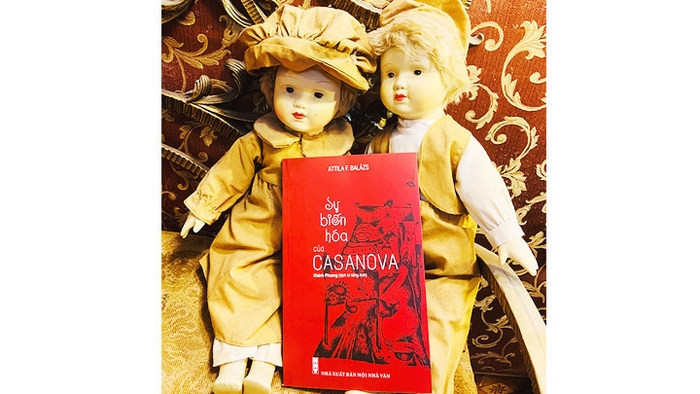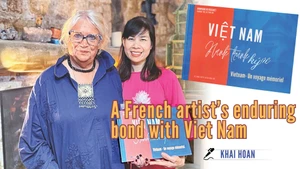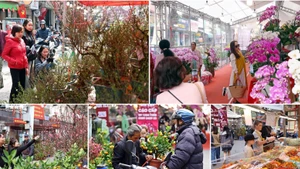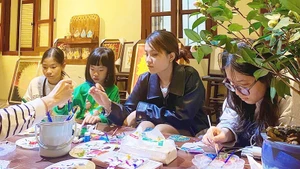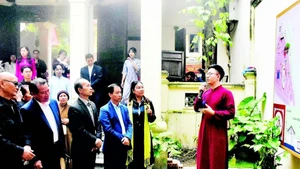The translator granted an interview with Nhan Dan (People) Newspaper reporter, sharing about her success in translating the Hungarian work as well as promoting Vietnamese literary works to international friends.
Q: ‘Casanova's Metamorphoses’ is the first collection of Hungarian short stories that you translated and published in Vietnam. What challenges did you face while translating this work?
A: Wherever I go, I want to learn a little bit about that destination. For example, I read Haiku poetry when I studied in Japan, and I fell in love with this genre during that time. I began my love for Puskin when I was in Russia and for fairy tales when I lived in France. Living and working in 25 countries, I knew a little bit about the international cultural integration. Although I have not really studied a certain culture in Europe, I can easily be sensitive to the literature. Therefore, there were not many challenges for me in translating ‘Casanova's Metamorphoses’.
Of course, I had to read the foreign version carefully to find the interesting things and message before I began my translation. I learned about the writer, his homeland and his relations with Vietnam. I also contacted the author directly to get other feelings.
Q: Did writer Attila F.Balazs’s responses give you any experience in literary translation?
A: He had profound knowledge about the worldview and outlook on life as well as were excellent in stories that explored the inner feelings of the characters. The author's profound message made readers to explain by themselves. That's why I found the book so fascinating and decided to translate it. The writer gave me a lesson that an open ending should be left for a story so that readers can think for themselves, creating interesting things and curiosity.
Q: How long did you translate the work? How much work can you do in one night?
A: Well, this is both an advantage and a disadvantage for me. I am ‘extreme’ in my translation of literary works. If I accept the translation of any poem or story, I must incarnate with the author and the work, forgetting time and space until it is completed. In the past, I was often ‘screamed’ at because of the negative impact on my health. Now, I have always prepared delicious fruits, cheesecakes and fruits for myself, so my relatives and friends have no need to worry or complain. Thanks to that, I can happily adapt my words and my emotions are not interrupted.
I translated ‘Casanova's Metamorphoses’ for a week straight with four sleepless nights. I asked my family for permission to seclude myself and only leave my room when it is necessary for a short time. However, it took a week for me to learn all the relevant information before translating to get the most beautiful words.

Writer and translator Khanh Phuong
Q: You are a member of the Hanoi Female Literary Translators’ Group and have also translated for free works of several Vietnamese authors, aiming to promoting Vietnamese literature abroad. What motivated you to translate literary works but willingly accepting no remuneration?
For me, the translation of stories and poems means also composition because it requires the translator to have ‘high-faluting wings’ or even ‘sleepwalking”. Therefore, preferably, literary translators should be writers or poets or those who have written stories and poems.
In thought that, so many Vietnamese authors contacted and asked me to translate their poems and stories and I was very willing. It's not that they couldn't ask anyone to translate, but they saw I also wrote stories and poems. Sometimes I helped them for free even though I did not have a lot of time. I understood their desire to connect, exchange and promote Vietnamese literature abroad. When Vietnamese literature is spread abroad, we should be proud that we can show off our interesting things to international friends.
Thank you very much!
| I have more and more foreign writers and poets. If COVID-19 pandemic did not appear, we would have met a lot. We learn from each other as well as support and cooperate together for a cross-border literature. (Translater Khanh Phuong) |
